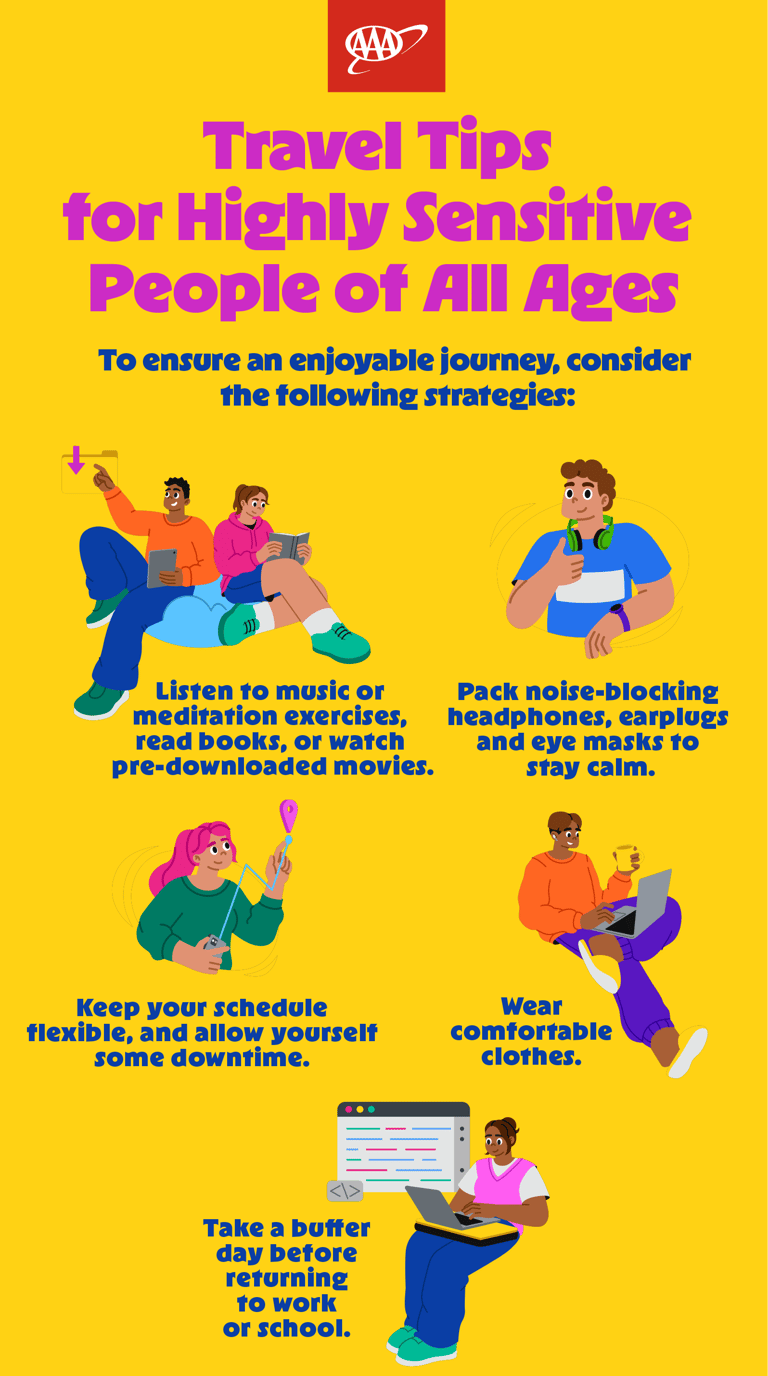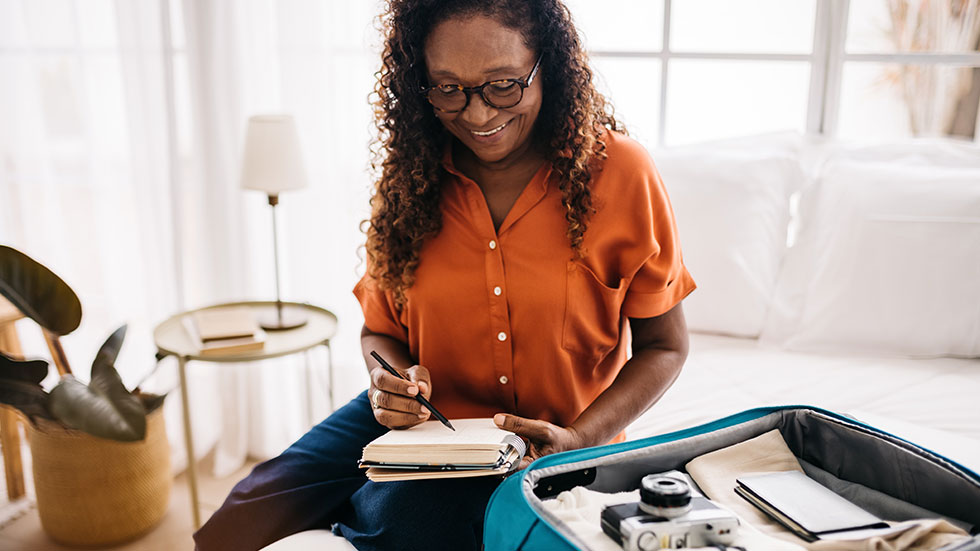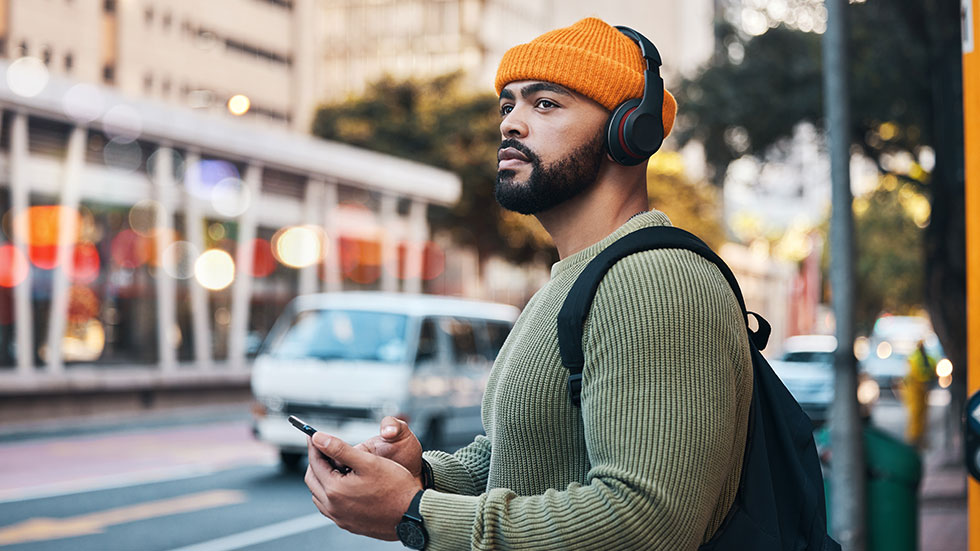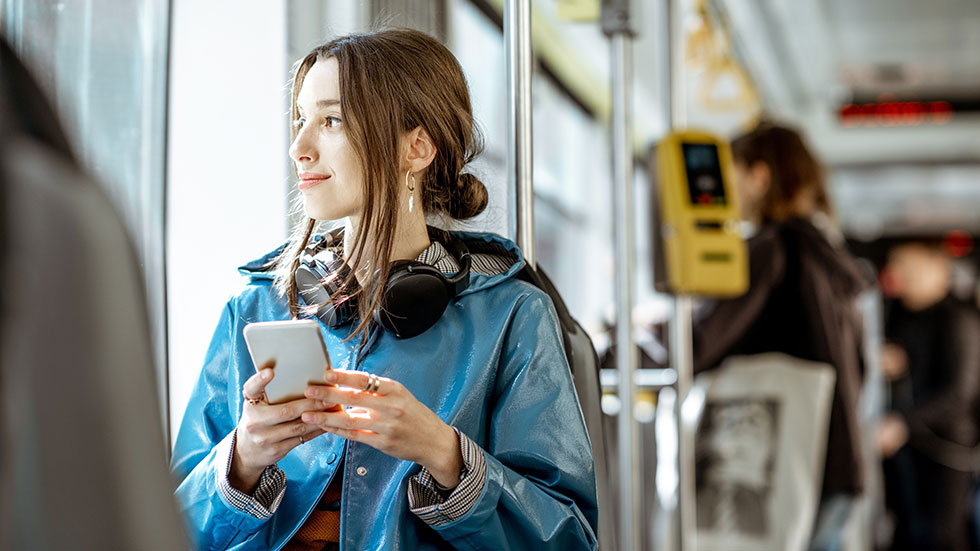
As a remote worker with perpetual wanderlust, I’m always looking for my next adventure. Whether it’s road-tripping across Canada or heading south of the equator to Chile, the thought of visiting new places excites me like nothing else.
As a highly sensitive person, however, I know that travel can be overwhelming. Highly sensitive people, or those with hypersensitivity, sit somewhere on the neurodivergent spectrum, which can affect how we experience the world when we travel.
Sensitivity means something different for everyone. For many people like me, it often means having difficulty processing sensory information. The texture of certain fabrics, bright lights, or noises—such as the sound of someone chewing—can trigger me. So can large crowds.
Since these external stimuli often arise during travel, it’s important to take precautions to ensure an enjoyable journey. Neurodivergent travel requires extra attention to sensory needs, as navigating new environments can sometimes prove challenging. Here’s my advice for highly sensitive travelers of all ages.

Pack plenty of comfort items
Listening to music or meditation exercises on your tablet or smartphone is a great way to “keep calm and carry on,” but remember to keep all your senses in mind when packing for your trip. Bring books and puzzles. Pre-download movies and TV shows that you love. Take tissues or handkerchiefs with you, and spray them with your favorite essential oil to sniff and drown out potentially triggering scents. A scented lotion or perfume can also work for these scenarios. These familiar things will relax you. They’re cozy reminders from home that will soothe your nervous system when facing the unpredictable.
Bring headphones, eye masks, and earplugs
Noise-blocking headphones are ideal for reducing sounds that might otherwise trigger hypersensitivity, helping you stay calm and focused. I like the cushy over-the-ear models, but when I’m out and about or having conversations with others, I prefer earplugs, such as Loop—which The New York Times called a “highly effective tool for reveling in life’s louder moments without sacrificing your health and wellness.” They aren’t noticeable but can help drown out loud or distracting background noise.
Sleep headphones such as MUSICOZY, which include built-in Bluetooth speakers, are a genius invention. They combine a sleep mask with headphones, blocking out light and sound simultaneously. If you need to see what’s going on, slide the band up to wear it as a headband. These accessories can be helpful at loud hotels or restaurants.

Don’t overpack the schedule
If you’re a highly sensitive person, it’s important to be mindful of your energy levels. While it might be tempting to pack your schedule as full as possible to "maximize" your vacation, it's essential to schedule some downtime to avoid sensory overload. The urge to check off all the major tourist destinations from your checklist might be strong, but too many crowds might drain your social battery.
Allow space in the itinerary for peaceful experiences, too. Go to parks and spend time in nature. Visit a quieter local spot, such as a beautiful library or historic cathedral. Stay flexible when these moments of hypersensitivity arise, and don’t hesitate to shift plans accordingly—as it’s necessary to recharge.

Wear comfortable clothes on the journey
With my high levels of sensitivity come sensory issues, so choosing clothing for travel is critical. You’ll never catch me wearing jeans, tight waistbands, or synthetic materials on a long flight or drive. I find these things intolerable, and they can quickly send me into an anxious spiral. For me, reliable clothing is anything 100 percent cotton.
My favorite is clothing made from bamboo, which is silky soft, naturally cooling, and wrinkle-free. I never travel anywhere without my staples from the brand Cozy Earth. They combine loungewear with a casual-chic style. For me, the bamboo jogger pants are a must, but if you prefer something looser, consider the rib-knit lounge pants. If you’re on a budget, Boody has cheaper bamboo dupes with options like their Downtime Lounge Pants.

Plan a ‘buffer’ day pre- and post-trip
Traveling can be a beautiful whirlwind, but for sensitive people, it can feel like you can’t catch your breath. Try to take a day off work or school before and after the trip to decompress. Routine is comforting for highly sensitive people; when you stray from your routine, you need time to adjust. The day before can be spent packing, double-checking details, and relaxing once everything is checked off your list. When you return, unpack your belongings and catch up on rest and recovery before returning to your day-to-day responsibilities. These “down days” can make a world of difference.

